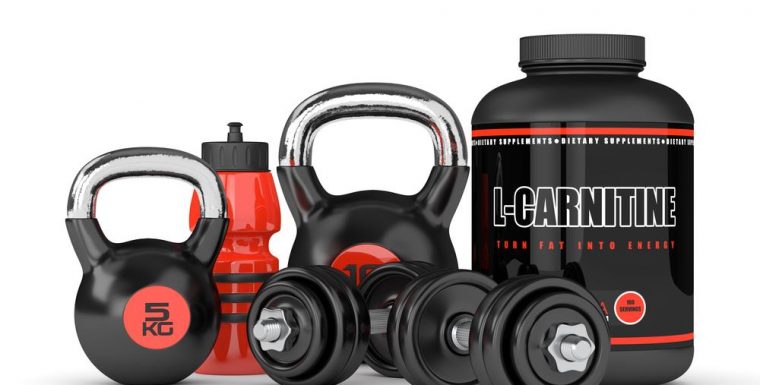L-carnitine is a naturally occurring amino acid that performs some important functions in the human body. This substance is also called vitamin-like, but it is not a vitamin, because the body can produce it on its own. The level of L-carnitine in the human body is homeostatic, which means that all its excess is successfully eliminated by the body. Is it necessary to take L-carnitine additionally as a dietary supplement? Scientists have not proven the direct efficacy of reception, but numerous experiments indicate that it is at the placebo level.
L-carnitine was discovered in 1905, but its physiological role was studied only by 1962. It turned out that this substance transports fatty acids to mitochondria through the inner membrane. In humans, it is present in the muscles and the liver.
L-carnitine action
Inside the muscle cells, there are microscopic bodies, which in science are called mitochondria. So, they are the generators of energy. The internal processes of mitochondria are similar to the stove, which will give more heat if you throw more fuel into it. In our body, in the role of fuel for these “stoves” act just the same fats. And so, strictly speaking, and they are burning.
As for the lives of athletes, the work of mitochondria for us is important in twins. After all, they give us energy by burning fat molecules. And the more energy we get, the better the results we show in training.
But where is L-carnitine? This is where the fun begins. His responsibilities in this process are to deliver fat to the mitochondria. And the more these “supplies” will be – the stronger the “stove” will flare up and the more energy we will receive, and the more fat we will burn.

The main effects of L-carnitine:
- Fat Burning
- Increased intellectual and physical tone
- Increase stress tolerance
- Excretion of toxins and other harmful substances
- Lowering cholesterol
- Cardiovascular Protection
Other beneficial effects of L-carnitine:
- Stimulates tissue regeneration
- Protects the nervous system
- Enhances oxygen supply to body tissues.
- Neutralizes the damaging effects of free radicals.
- Prevents apoptosis (cell death)
- Protects bones from osteoporosis
The benefits of L-carnitine for an athlete
L-carnitine increases the body’s endurance during aerobic sports (jogging, rowing, swimming, etc.). At the same time, if simultaneous weight loss is not required, the combination of left carnitine with a high-fat diet will give the maximum energy effect.
L-carnitine is useful for increasing endurance and in anaerobic sports (bodybuilding, powerlifting, bodybuilding, etc.). However, in this case, note that the anabolic effect of L-carnitine may be masked by a decrease in total body weight due to a decrease in the amount of adipose tissue in the body. Therefore, the anabolic effect of carnitine should be evaluated by calculating the percentage of adipose tissue relative to total body weight. At the same time, in order to maximize the effect of l-carnitine, it should be combined with a balanced diet and workouts.

Sources of L-carnitine
A large amount of this substance contains fish, meat and dairy products. To ensure the daily needs need to consume 300-400 grams of beef. In this case, any heat treatment significantly reduces the amount of L-carnitine in food. For this reason, it is recommended to consume it in the form of additional food additives. There are quite a lot of similar products on the market of sports nutrition, therefore, it will not be difficult to find it.
Compatibility with other nutritional supplements
L-carnitine is well combined with all fat burners, enhancing their positive effects and reducing possible side effects. In addition, carnitine can be combined with the intake of proteins and gainers during the period of gaining muscle mass. This will allow to gain better muscle mass, without excess fat.

How much to take?
The optimal dosage of L-carnitine is a dose of 500 mg to 2 grams per day. Scientists have found that the excess of these doses does not lead to negative effects or positive effects. Take should be 30 minutes before a workout and in the morning on an empty stomach. It is during these periods that L-carnitine has maximum activity.
